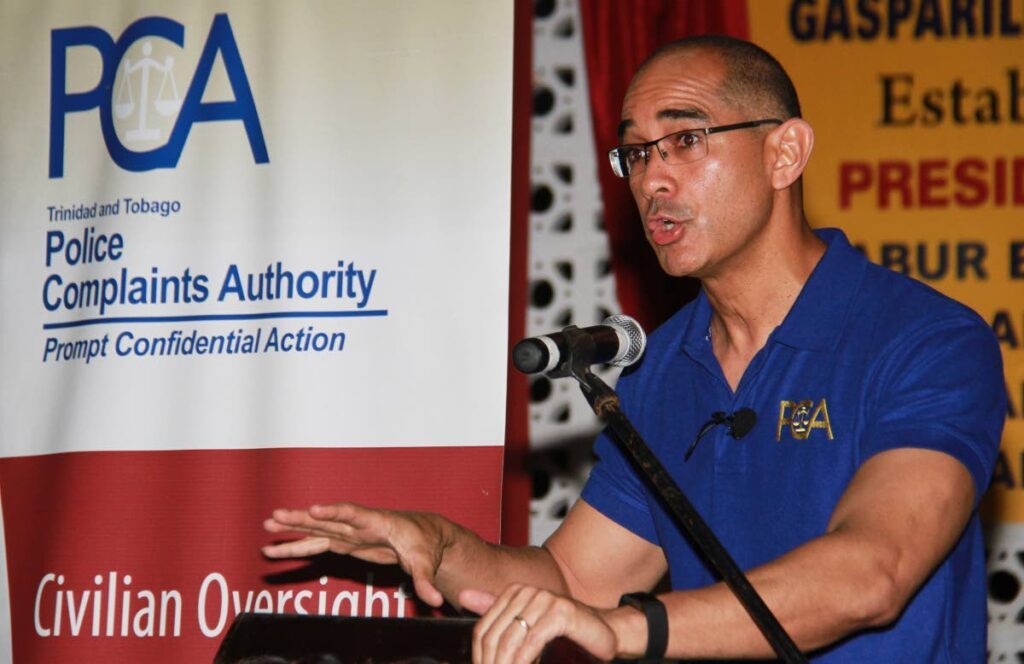PCA’s growing workload

The message from Police Complaints Authority (PCA) director David West and deputy director Michelle Solomon-Baksh when they spoke with Parliament’s Accounts Committee on Wednesday was that the authority faced a fast growing workload with shrinking resources.
When Mr West was appointed in 2014, there were 352 complaints against police officers before the authority. By 2022, the complaints had increased by 66.7 per cent and today, the authority is considering 714 complaints.
The authority receives between 400 and 500 complaints each year, all of which must be investigated by one of six teams of officials supervised by Mr West or Ms Solomon-Baksh.
A small number of those complaints meet the scope of the PCA’s remit or are identified as representing serious police misconduct after preliminary investigation. An even smaller number are referred to the Director of Public Prosecutions or the Commissioner of Police for action.
Mr West said the authority manages its subvention efficiently, but must depend on services beyond its capabilities for certain investigations.
The PCA, as it investigates the police, cannot use police resources, so it must be self-sufficient in handling investigations.
Extracting actionable information for the four areas that the authority considers a priority – murder, manslaughter, perverting the course of justice and misbehaviour in public office – takes time, sometimes years, and requires active co-operation from the police.
Institutionally, the Police Service prefers to investigate its own officers through the Professional Standards Bureau (PSB) and the Police Complaints Division, sometimes overstepping the PCA’s investigative process. The PSB boasted in 2022 that it investigated 429 officers between 2018 and 2021, 18 of whom are before the court.
One handicap for the PCA is that police officers also go their own way. In April, 1,200 frontline officers were equipped with body cameras, but have largely chosen not to turn them on. Also, footage from these cameras is rarely available to the PCA, which has suggested a regime of penalties for non-compliance.
The government intends to treble its rate of hiring of police recruits, from 300 to 1,000 per year. It isn’t hard to imagine that such a substantial increase in novice police officers is likely to cause new problems.
Add to that a growing public confidence in the PCA’s execution of its duties, and it’s reasonable to expect a constant, if not stratospheric increase in complaints requiring its attention.
The Police Service Commission’s survey of public trust, confidence and satisfaction in the police service will be available to the public tomorrow. The last survey offered a dismal evaluation.
The PCA’s job is to ensure that the most egregious failings of police officers are addressed in the interests of public justice.
It’s important that it is properly equipped to do so.

Comments
"PCA’s growing workload"